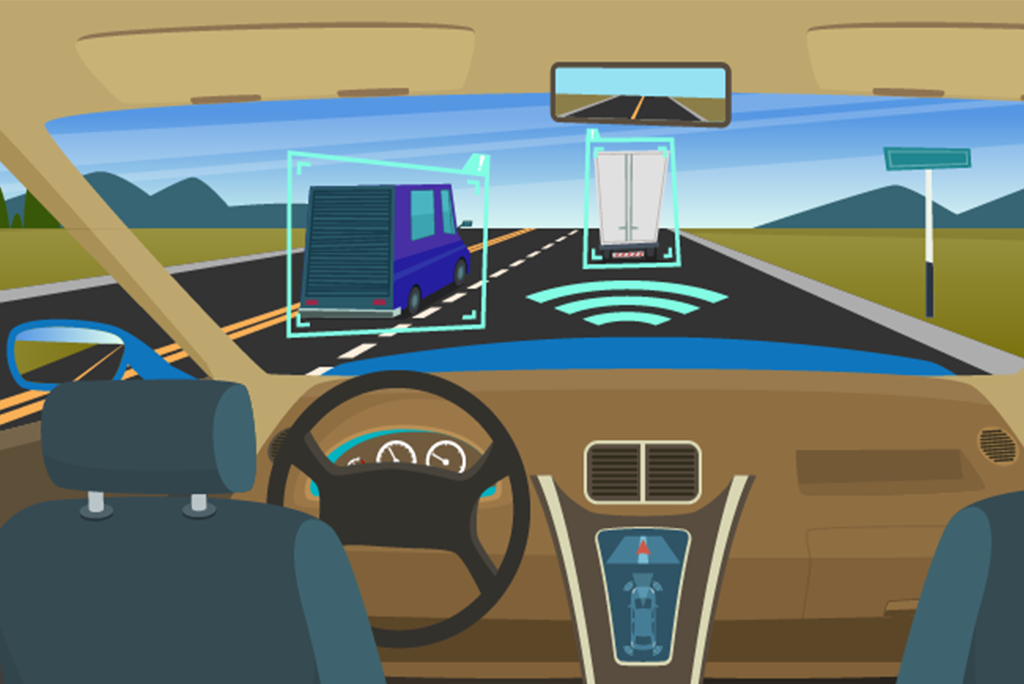
Autonomous vehicles (AVs) have the potential to save lives by reducing the number of automobile accidents. Nevertheless, they continue to face a major roadblock: Consumers don’t trust them.
According to a recent study that examined the psychological biases of drivers in the U.S., people tend to have “unrealistic safety requirements” for autonomous vehicles. Survey feedback revealed that many people would be unwilling to buy an AV even if the technology dramatically decreased accidents. For example, only 11% of drivers said they would be willing to buy an AV if there was a 10% reduction in accidents, while 37% said they would still not buy one even if today’s accident numbers were halved. Additionally, 15% of respondents said they would only buy AVs if they had a “perfect safety record.”
Study co-author Dr. Iyad Rahwan, Director of the Max Planck Institute in Berlin, writing in the Wall Street Journal, said the study reveals two major reasons people don’t trust autonomous vehicle technology. First, people have an “inflated perception” of their own driving skills. For example, most of the survey respondents said 66% of accidents could be reduced if everyone drove like them. Second, people demonstrate “more aversion” to driving in AVs than with a human driver—even when both are “equally safe.”
Rahwan mentions another likely problem: People may feel betrayed when autonomous vehicles fail to live up to the safety standards the industry has promised.
As such, the industry’s tendency to fixate on the safety benefits could actually result in people trusting AVs less, especially as these systems are still being perfected and will inevitably get into accidents.
So how can the autonomous vehicle industry build trust and help increase public support? While organizations should continue to prioritize safety, they should also focus more on communicating the many ways AVs can make our lives easier. A popular benefit not to be overlooked is reducing traffic and long, stressful commutes.
Drivers Want Vehicles With Driver Assistance Systems
While most people don’t trust autonomous vehicles just yet, studies show the public is eager to buy cars with advanced driver assistance systems.
According to AAA’s yearly automated vehicle survey, 58% of respondents said they wanted cars with improved safety systems such as lane keeping assistance and emergency braking. Approximately 96% of last year’s vehicle models contained at least one of these systems.
This is good news for the autonomous vehicle industry. As more people drive cars equipped with these systems, their trust in advanced vehicle technology is likely to grow, which could boost their trust in self-driving technology over time.
Preparing for an Autonomous Future
Prepare your organization for the latest developments in AV technology with training in foundational and practical applications. Developed by leading experts in the field, the IEEE Guide to Autonomous Vehicle Technology is an online seven-course training program.
Connect with an IEEE Content Specialist today to learn more about purchasing the program for your organization.
Interested in purchasing the program for yourself? Access it through the IEEE Learning Network (ILN)!
Resources
Bonnefon, Jean-François, Rahwan, Iyad, Shariffa, Azim. (21 May 2021). How safe is safe enough? Psychological mechanisms underlying extreme safety demands for self-driving cars. Transportation Research Part C: Emerging Technologies. Science Direct.
Rahwan, Iyad and Shariff, Azim. (April 6 2021). Self-Driving Cars Could Save Many Lives. But Mental Roadblocks Stand in the Way. The Wall Street Journal.
Edmonds, Ellen. (25 February 2021). AAA: Today’s Vehicle Technology Must Walk So Self-Driving Cars Can Run. AAA News Room.


[…] How Can The Autonomous Vehicle Industry Build Trust Among Consumers – Institute Of Electrical And Electronics Engineers […]